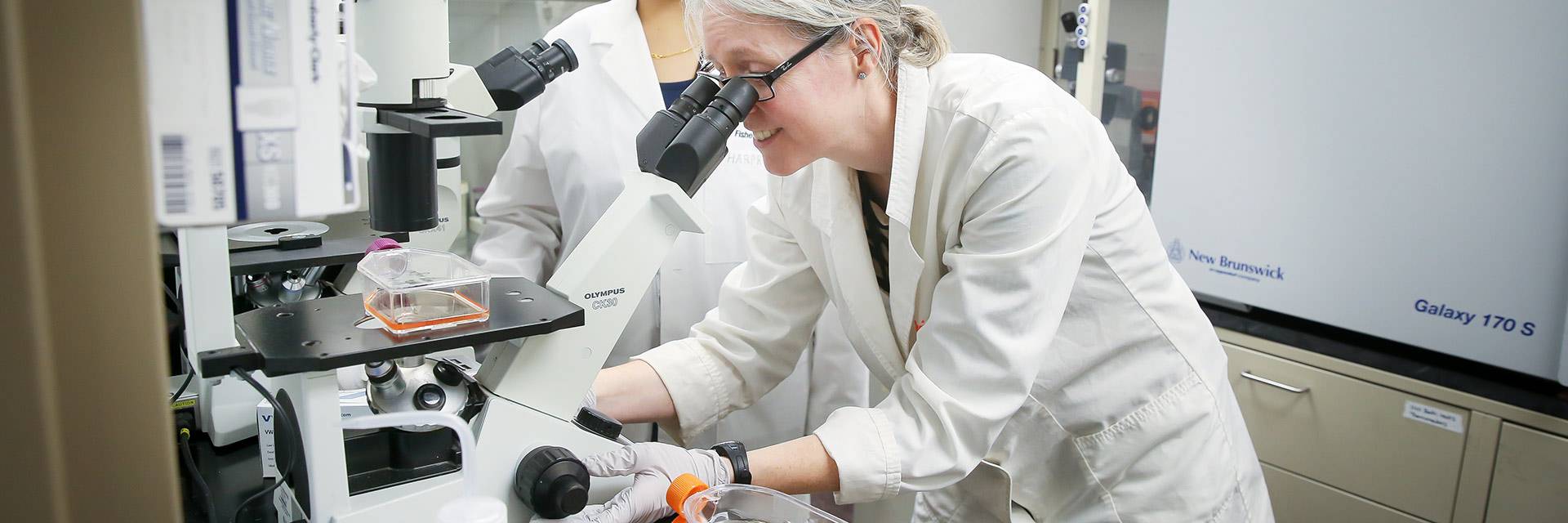Biomedical Sciences Ph.D.
Bridge the gap between the laboratory bench and the patient's bedside by preparing for a career in biomedical research.
Investigate and explore the processes that govern the functioning of molecules, cells, and organisms in health and disease through a Biomedical Sciences Ph.D. Our researchers delve deep into these topics to produce internationally recognized research that impacts the world.
- Program type:
- Doctoral Degree
- Format:
- On Campus
- Est. time to complete:
- 5 years
- Credit hours:
- 90
Why earn a Ph.D. in biomedical sciences?
UND's Biomedical Sciences Ph.D. Programs
-
Contribute to research at one of the nation's premier facilities for the study of drug addiction and neurodegenerative diseases.
-
Utilize the most advanced technology at our 20,000-square-foot Center for Biomedical Research.
-
Obtain a university stipend for accepting a teaching or research assistantship.
-
Network with your colleagues through the Biomedical Graduate Student Association.
-
Prioritize education and professional development with small class sizes and student to faculty ratio.
-
Take part in a unique program that combines multiple research areas to create a comprehensive educational experience.
